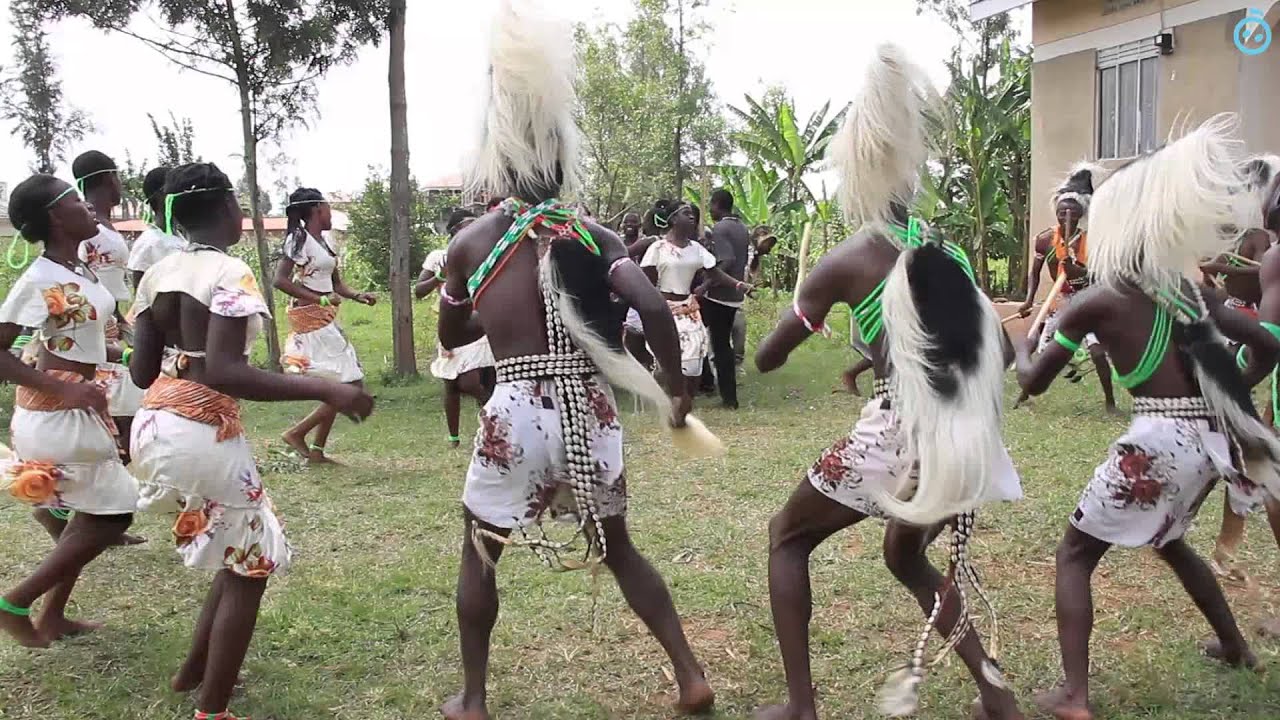The Imbalu ceremony can be traced through records dating back 200 years, though the Bamasaaba believe the ritual antecedes these by several hundred years, with its origins lost in time.
The season begins with a festival of traditional dancing (commonly known as ‘akadodi dance’), millet beer, roasted meat and offerings to ancestors. The candidate males and members of their families are smeared in millet paste to protect them from bad spirits as per the custom.
Each is then paraded from village to village singing, dancing and visiting relatives over three days. Imbalu culminates on the third day when the male is finally circumcised. If he does not flinch, he’s rewarded with gifts such as money and livestock.
James Kangala, a Bamasaaba man and founder of a cultural council in Mbale narrates that, “The dancing and singing is a way of helping the young man to speak in public, introducing the gentleman into public life.”
Though fresh blades are now used to prevent the spread of HIV, there have been few concessions to modernity. Traditional surgeons or ‘bashebi’ are believed to be appointed by spirits of ancestors to perform the circumcisions.
Robert Nangoye, a mushebi, has circumcised hundreds of males over his 15 years in the role.“For a Bamasaaba boy to be called a man, you have to pay a debt to the culture. It’s our law,” he says.
Much as one could think that this could be a babalic act and could forego it, there is no way to escape it. Males who try to escape it are hunted down and circumcised by force. “They’ll capture you, even if you go to Europe and back. As long as he’s from Bamasaaba, he will have to be circumcised,” Mr Nangoye reckons.
Never the less, not all Bamasaaba support the ritual. Lenard Massa, who was circumcised the traditional way in 1988, says males should have a choice. “If you go through the cultural way they take you through a painful exercise,” Mr Massa says. For his anti-belief, his young son was circumcised in a hospital, though it means he won’t ever be recognised as a Bamasaaba man.
“I didn’t want him to go through what I did,” Mr Massa says.
But for most of the tribe, the ceremony remains deeply significant. They have always been open to outsiders witnessing Imbalu, and are beginning to open up to tourists.
The tourist board is promoting the opening and closing festivals, along with better known local attractions such as coffee plantations, the waterfalls and hiking at Mount Elgon. This has seen thousands turn up for the opening festivals, mostly from surrounding regions.
